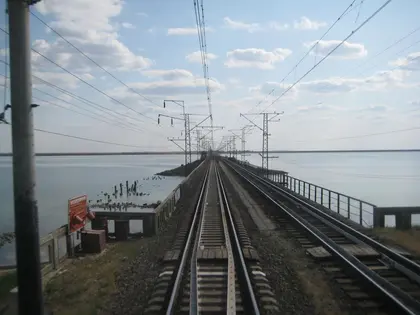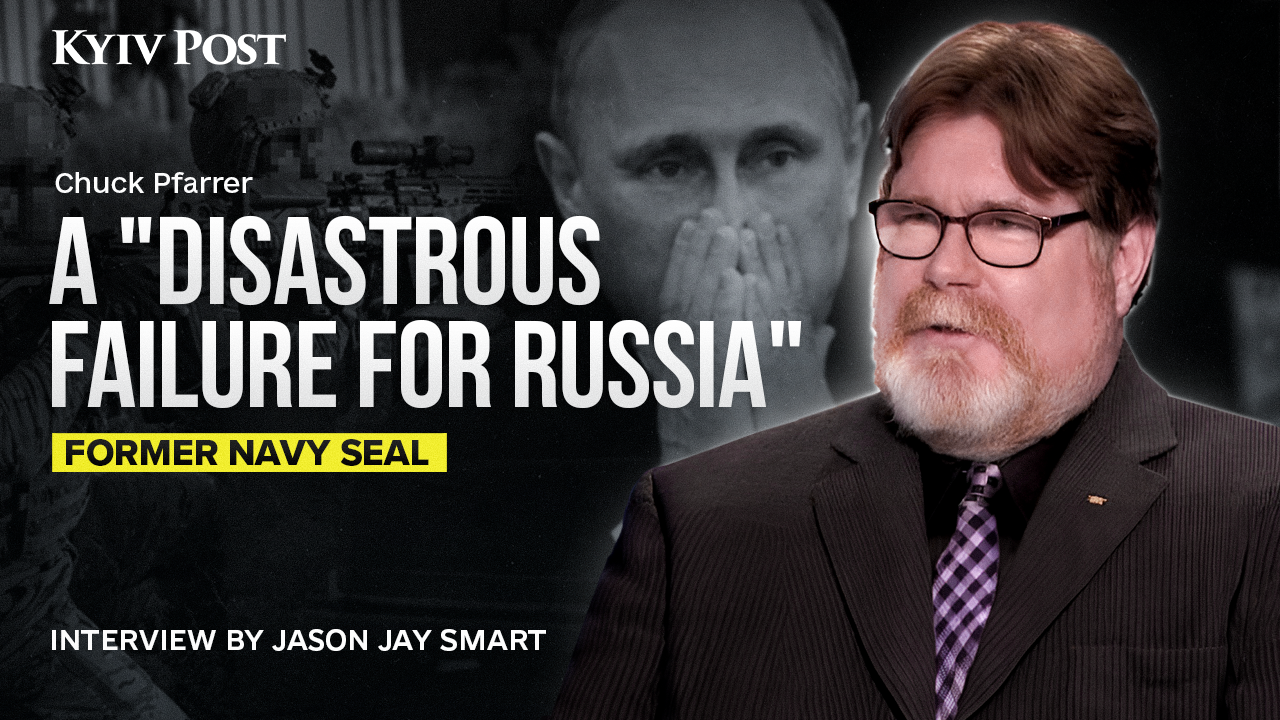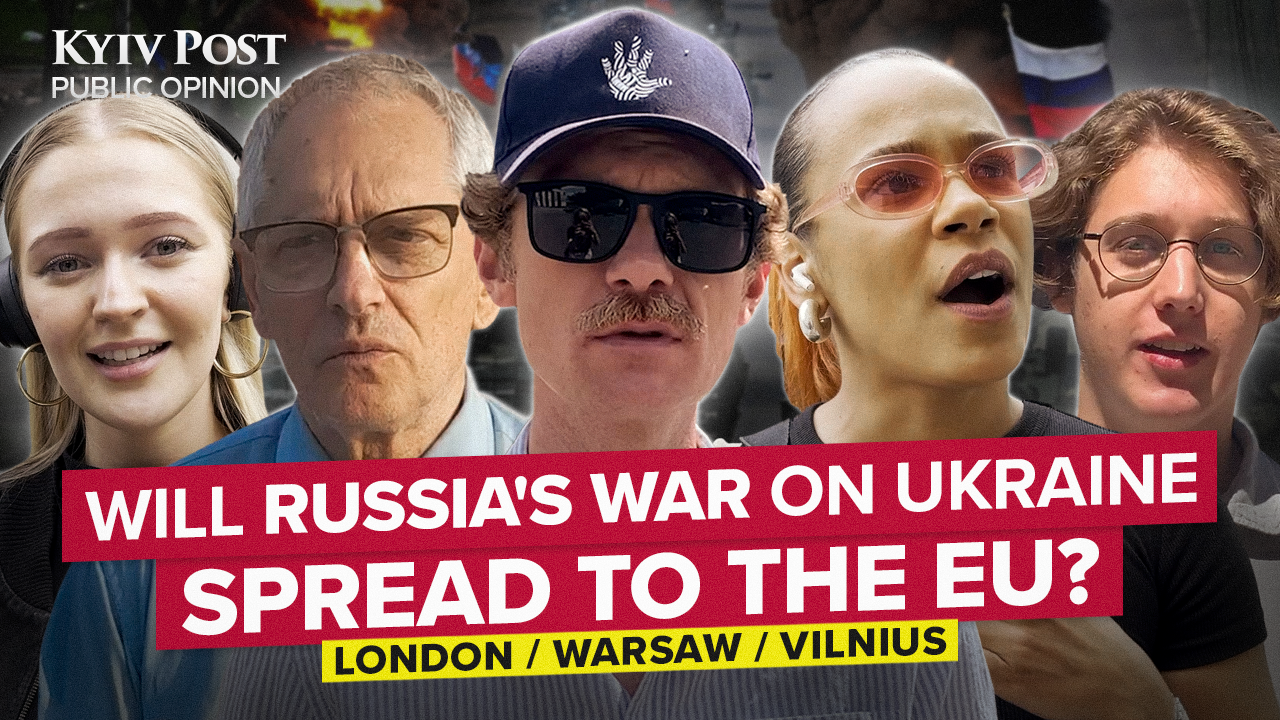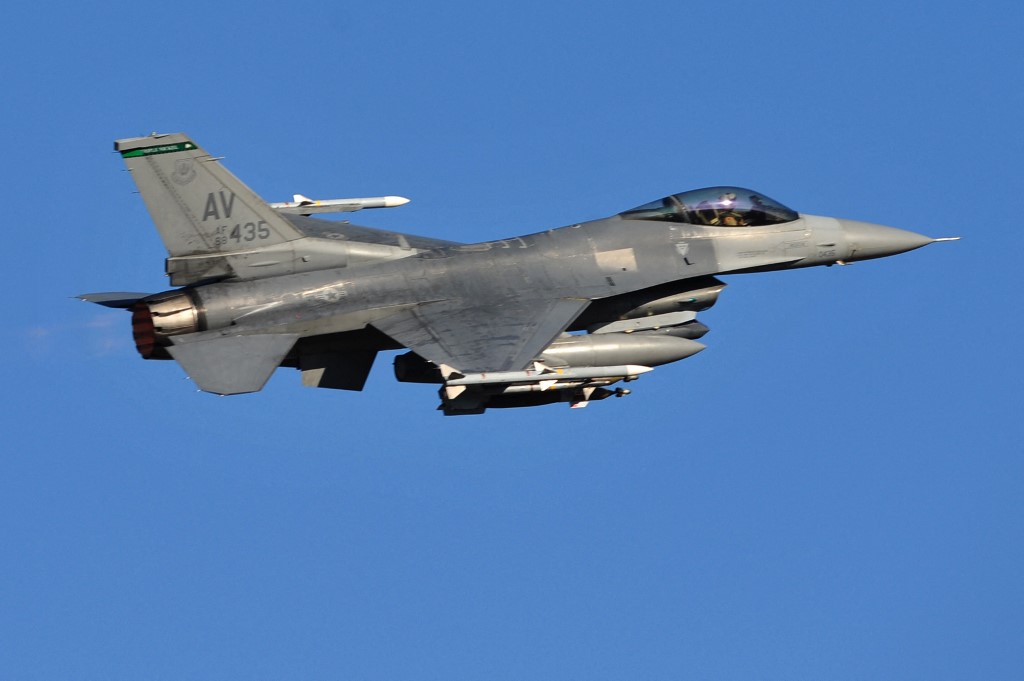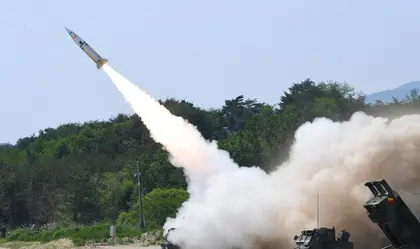Russian milbloggers are keeping uncharacteristically quiet about a Ukrainian strike on a key bridge linking occupied Crimea and occupied Kherson Oblast, in what Western analysts have said could signify a marked change in how the Kremlin manages the information space.
Ukraine’s military confirmed the attack in a Telegram post on Saturday, saying: “The defense forces of Ukraine have successfully launched a strike on the Chonhar Bridge on the morning of 29.07.2023.”
Russian reaction to the attack was muted – the Russian-installed governor in occupied Kherson, Vladimir Saldo, said the bridge had been targeted by Storm Shadow missiles but all 12 had been successfully intercepted.
There was no mention of the attack on Kremlin-state media, nor was there any reaction in the normally vocal Russian milblogger information space – notwithstanding the fact that a previous attack on the same bridge in June had generated an outpouring of commentary and outrage.
The silence was noted by the Institute for the Study of War (ISW), which said in its daily assessment on Sunday: “The Chonhar bridge is a notable bottleneck along a critical Russian ground line of communication (GLOC), and it is highly unlikely that Russian milbloggers would voluntarily ignore a successful or unsuccessful Ukrainian strike on the bridge.”
The ISW posited that after the crackdown on two prominent Kremlin critics – Igor Girkin and Wagner Group financier Yevgeny Prigozhin – in recent weeks, Russian milbloggers “may be shaping their coverage of the war in Ukraine in ways more favorable to Kremlin narratives out of fear of Kremlin punishment.”

UK Leads Crimean Air Reconnaissance Operations Against Russian Air Defenses
On public social media, there were fewer qualms about reporting the consequences of the strike – the Crimean Wind Telegram channel posted a screenshot of “tourists who went along the land corridor to Crimea for new experience” complaining about being made to take detours due to damage on the bridge.
And elsewhere, videos purporting to show traffic backed up for miles also began circulating on Telegram and Twitter.
Traffic jam situation at Chonhar bridge, hit by Ukraine on 29 July, is getting worse, according to Mariupol mayor Petro Andriushchenko.
— Euromaidan Press (@EuromaidanPress) July 31, 2023
The crucial transport hub is essential for supplying Russian occupation troops in southern Ukraine
🎥 https://t.co/kcH8nLncJd pic.twitter.com/MJoqpxqEUR
Maintaining silence over the strike became even trickier for Russian milbloggers on Monday, when satellite imagery and what appeared to be a photo taken on the bridge itself appeared online, contradicting Saldo’s earlier claims that all the missiles targeting the bridge had been intercepted.
A photo of the Chonhar bridge after a Ukrainian strike on it on 29th July, 2023.
— Anton Gerashchenko (@Gerashchenko_en) July 31, 2023
Ukrainian Armed Forces confirmed a strike on Chonhar bridge (one of the key elements in Russian military logistics in the South of Ukraine).
Russian media did not mention the strike at all.… pic.twitter.com/1cfi8JWpKB
Ukraine didn’t confirm what type of munition was used in the latest strike, but, as mentioned above, this isn’t the first time such an attack has occurred.
Last month, Kyiv military officials confirmed that Ukraine was responsible for hitting the Chonhar Bridge in late June, adding it was carried out with UK-supplied Storm Shadow cruise missiles.
“The proof of the effectiveness of these cruise missiles is the damage to the bridges over Lake Syvash near Chonhar which made ammunition and other material and technical means supplies much more difficult for the enemy,” said Brigadier General Oleksiy Hromov, Deputy Chief of the Main Operational Department of the General Staff of the Armed Forces of Ukraine.
Yet even in the face of the mounting evidence of a successful Ukrainian Storm Shadow strike on the Chonhar bridge, Russian milbloggers remain silent.
The ISW concluded: “General fear of Kremlin punishment would not likely result in such near-universal lack of coverage of a dramatic event, however, and it is more likely that a specific Kremlin directive not to cover disruptions to critical ground lines of communication caused this lack of reporting.
You can also highlight the text and press Ctrl + Enter


